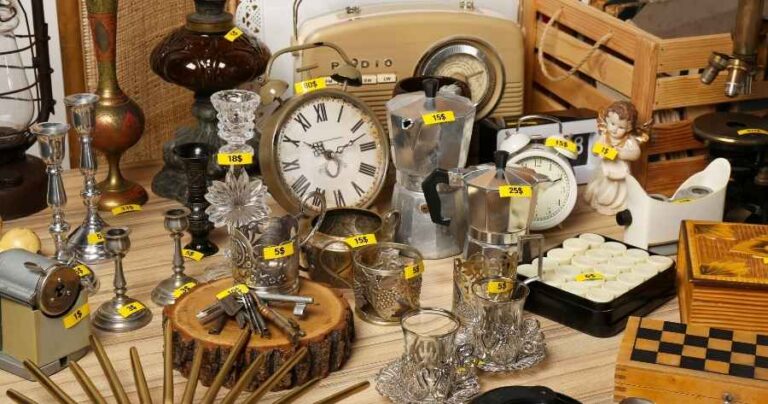
Online dating has completely changed the way people look for relationships. What once started as a way to meet someone genuine has, for many, begun to feel more like browsing a catalog than building a real connection. Swiping through endless profiles, comparing looks, interests, and lifestyles has turned dating into an experience that feels transactional rather than emotional.
Instead of getting to know one person deeply, users often juggle multiple chats, chasing the next “better match.” Profiles become products, messages turn into marketing pitches, and genuine chemistry competes with algorithms designed to keep people scrolling. The thrill of choice can be exciting at first, but too much choice often leads to burnout, detachment, and unrealistic expectations.
Dating apps are designed to give instant gratification. The endless swipes, likes, and matches create a sense of control and validation that feels rewarding, even if it’s temporary. People start evaluating potential partners like shoppers comparing items, deciding who’s “worth it” based on quick impressions, photos, or witty bios. In this process, authentic emotion often takes a back seat to surface-level attraction.
This doesn’t mean online dating is hopeless. Many successful relationships have begun with a simple swipe. The real issue lies in how people use these platforms and the mindset they bring into them. When dating turns into a numbers game, it becomes harder to slow down, invest emotionally, and see someone beyond their profile picture.
Understanding why online dating feels this way is the first step toward changing it. By approaching it with intention, valuing real connection over constant comparison, you can shift the experience from shopping for attention to finding genuine love.
Why Online Dating Feels Like Shopping: The Core Reasons
The “shopping” feeling that comes with online dating isn’t just in your head. It’s built into the design, culture, and psychology of modern dating apps. Several factors contribute to this shift from genuine connection to a marketplace of endless options, ranging from the way profiles are presented to the instant gratification built into every swipe.
Below are the key reasons why modern dating often feels more like browsing than bonding.
Profiles Are Carefully Packaged Products
Online dating profiles are often crafted the same way brands design advertisements; selective, polished, and aimed at catching attention fast. People highlight their best traits, most flattering photos, and impressive hobbies, often leaving out anything that feels too ordinary or imperfect. The result? Profiles start to look more like marketing campaigns than honest reflections of real people.
Every detail; from the photo angle to the bio wording, is chosen to attract the “right” kind of attention. This isn’t always done with bad intentions; it’s natural to want to put your best foot forward. But the problem is that it creates an unrealistic picture of who someone really is. Instead of authenticity, dating apps often showcase idealized versions of people competing for clicks and matches.
Just like shoppers comparing products online, users start scanning profiles quickly, focusing on surface details; looks, interests, location, and even job titles, rather than deeper compatibility. In this process, genuine personality traits and emotional connection get overshadowed by presentation.
Over time, this constant exposure to “perfect” profiles changes how people think about dating. It becomes less about finding connection and more about finding someone who fits a checklist. The human side of love—the quirks, flaws, and unpredictability, gets lost in the process.
The Downside of Too Many Options: Decision Fatigue
One of the biggest reasons online dating feels like shopping is the overwhelming number of choices. With endless profiles just a swipe away, it’s easy to believe the perfect match is always one more scroll ahead. This abundance of options may sound exciting at first, but it often leads to decision fatigue; a mental exhaustion that makes choosing and committing much harder.
When people are flooded with too many possibilities, their focus shifts from connection to comparison. Instead of giving one person a real chance, they start evaluating every match against the next, always wondering if someone better might be out there. The result is a cycle of short-lived conversations, half-hearted interest, and constant disappointment.
This behavior mirrors shopping habits, when consumers browse endlessly, they struggle to decide because there’s always another product to consider. Dating apps use the same psychology, keeping users engaged through infinite swiping and instant gratification. But that sense of control quickly turns into emotional burnout.
Over time, the excitement fades, and genuine compatibility becomes harder to recognize. People become more selective, less patient, and sometimes even cynical about love. Too much choice doesn’t create better matches, it creates confusion, detachment, and a mindset where people are treated like options instead of opportunities for real connection.
Are You Dating a Person or an Algorithm?
Modern dating apps rely heavily on algorithms to decide who you see, who sees you, and how likely you are to match. While this technology is meant to make finding love easier, it often ends up shaping the entire experience, sometimes more than our own choices do. Instead of meeting someone naturally, many users are essentially being paired by code.
These algorithms analyze every tap, swipe, and pause to predict what kind of profile you’ll find attractive. They learn your habits; who you swipe right on, how long you look at a picture, and even the types of bios you engage with. Over time, the app begins to feed you a carefully curated selection of people it believes you’ll like, based on your behavior rather than your true emotional needs.
The problem is that this system encourages instant attraction over genuine compatibility. You’re shown people who fit patterns, not necessarily partners who share your deeper values or long-term goals. It becomes less about natural chemistry and more about what the algorithm thinks will keep you swiping.
This influence can make dating feel artificial, as if you’re playing a game designed for engagement rather than connection. Instead of following your instincts or emotions, you’re guided by software that values activity over authenticity.
When technology takes over too much of the process, it’s easy to forget that behind every profile is a real person; not just data on a screen. To find something meaningful, you have to step outside the algorithm’s loop, take your time, trust your instincts, and focus on genuine conversations that go beyond the swipe.
The Monetization of Love: Pay to Be Seen
Dating apps may promote themselves as tools for finding love, but at their core, they’re also businesses built around profit, and that profit often comes at the expense of authenticity. Many platforms now operate on a “pay to be seen” model, where visibility and success in finding matches are directly tied to how much you’re willing to spend.
Features like profile boosts, super likes, and premium subscriptions promise better chances of finding love. But what they really do is turn romance into a marketplace. Instead of everyone having an equal chance to connect, the system favors those who can pay for more exposure or enhanced features. This changes the entire dynamic of dating, it’s no longer about chemistry or shared values, but about visibility and algorithmic advantage.
The emotional side of dating gets lost when attention becomes a commodity. People start to view their profiles as investments, wondering if they should pay to “perform” better. Meanwhile, apps use gamified designs, like swiping streaks and match notifications, to keep users engaged and spending, even when real connection is rare.
This cycle creates a paradox: the more people pay to find love, the more the process starts to feel like a transaction. What used to be about connection becomes about competition, and authenticity takes a back seat to visibility.
When love itself turns into a paid experience, it’s easy to lose sight of what truly matters, emotional connection, mutual effort, and the natural rhythm of human attraction that no algorithm or upgrade can replace.
The Emotional Cost: Loneliness in a Crowded App
Dating apps may promote themselves as tools for finding love, but at their core, they’re also businesses built around profit, and that profit often comes at the expense of authenticity. Many platforms now operate on a “pay to be seen” model, where visibility and success in finding matches are directly tied to how much you’re willing to spend.
Features like profile boosts, super likes, and premium subscriptions promise better chances of finding love. But what they really do is turn romance into a marketplace. Instead of everyone having an equal chance to connect, the system favors those who can pay for more exposure or enhanced features. This changes the entire dynamic of dating, it’s no longer about chemistry or shared values, but about visibility and algorithmic advantage.
The emotional side of dating gets lost when attention becomes a commodity. People start to view their profiles as investments, wondering if they should pay to “perform” better. Meanwhile, apps use gamified designs, like swiping streaks and match notifications, to keep users engaged and spending, even when real connection is rare.
This cycle creates a paradox: the more people pay to find love, the more the process starts to feel like a transaction. What used to be about connection becomes about competition, and authenticity takes a back seat to visibility.
When love itself turns into a paid experience, it’s easy to lose sight of what truly matters, emotional connection, mutual effort, and the natural rhythm of human attraction that no algorithm or upgrade can replace.

Can Real Love Survive This System?
Despite all the noise, manipulation, and algorithms shaping online dating, real love can still survive, but only when people use these platforms with awareness and intention. The system may be designed for engagement, not emotional fulfillment, yet genuine connection is still possible for those who approach it differently.
Love survives when users stop treating dating like a numbers game and start focusing on quality over quantity. It’s about slowing down, engaging in real conversations, and showing curiosity beyond the surface. When you look past the filters, the bios, and the “perfect matches,” you rediscover the human side of dating; the shared laughter, vulnerability, and mutual effort that no app can manufacture.
It also means being honest about what you want. When both people communicate clearly, respect boundaries, and approach dating with sincerity instead of strategy, the relationship can grow in a healthy way, even in a digital space.
Real love endures not because the system supports it, but because people choose to rise above it. When you use the tools without letting them use you, focus on authentic connection instead of validation, and lead with patience and empathy, love can still cut through the algorithms, the swipes, and the noise.
Technology may have changed how people meet, but it hasn’t erased the essence of love; it’s still about presence, understanding, and two people choosing each other for who they truly are.
Expert Insight: What Psychologists Say
According to studies published in the Journal of Social and Personal Relationships, online dating creates an illusion of control over romantic outcomes but in reality, it often increases cognitive overload and emotional distance.
Dr. Helen Fisher, biological anthropologist and relationship expert, warns that “choice overload can keep people from making real romantic decisions.”
Psychologists have studied the effects of online dating for years, and their findings reveal both the power and the pitfalls of digital romance. While dating apps make meeting new people easier, they also change how the human mind approaches love, attraction, and connection.
Experts explain that the design of dating apps taps into the brain’s reward system, the same mechanism activated by gambling or social media likes. Each swipe, match, or message releases a small dose of dopamine, giving users a quick sense of excitement and validation. This constant stimulation can make dating addictive, turning the search for love into a cycle of chasing short-term pleasure rather than long-term compatibility.
Psychologists also note that the paradox of choice plays a major role in modern dating fatigue. Having too many options makes it harder to decide, often leading to indecision, doubt, and dissatisfaction with whoever you do choose. Instead of deepening one connection, users may keep searching for the next best match, creating emotional restlessness.
Another concern experts highlight is emotional detachment. Because interactions happen behind screens, empathy and vulnerability often decrease. Rejection feels easier to deliver, and harder to process, when it happens through an app, leading to ghosting and a culture of disposability.
However, psychologists also emphasize that online dating isn’t inherently bad, it’s how people use it that matters. Approaching it with self-awareness, clear intentions, and patience can counteract many of its negative effects. Treating matches as real people, setting healthy limits on app use, and prioritizing emotional honesty all help restore balance.
Ultimately, experts agree that while technology has changed the landscape of dating, human connection still thrives on authenticity, empathy, and communication; qualities that no algorithm can replace.
What’s The Future Of Love In A Swipe Culture?
As dating continues to evolve in a world dominated by apps and swipes, the future of love is being reshaped by technology, and the choices people make about how to use it. Swipe culture, with its endless options and quick judgments, challenges traditional notions of courtship, but it also offers new possibilities for connection across distances and differences.
Moving forward, successful relationships will likely depend on balancing the convenience of technology with the timeless need for emotional depth and presence. People may become more selective about how they engage, seeking quality interactions over quantity. Innovations in dating apps might shift toward promoting meaningful conversations rather than just matching based on looks or algorithms.
There’s also growing awareness around digital well-being and healthy relationship habits, encouraging users to set boundaries, prioritize self-care, and avoid burnout. As this matures, swipe culture could transform from a superficial marketplace into a tool that supports genuine bonding.
Definitely, the future of love won’t be dictated solely by apps or algorithms. It will come down to how individuals choose to connect, with openness, honesty, and intention, proving that even in a fast-paced, swipe-driven world, true love can still find a way.
Conclusion
Online dating has revolutionized how people meet, but it often feels more like shopping than genuine connection. The constant swiping, endless options, and algorithm-driven matches can turn the search for love into a transactional experience, leaving many feeling overwhelmed and disconnected. However, understanding these challenges is the first step toward approaching online dating with intention and authenticity. By slowing down, focusing on meaningful interactions, and looking beyond the surface, it’s still possible to find real connection in a digital world. True love isn’t erased by technology, it simply requires patience, effort, and a willingness to see people as more than profiles on a screen.
Frequently Asked Questions (FAQs)
1. Why does online dating often feel like shopping?
Online dating platforms encourage quick judgments and endless browsing, which can make choosing a partner feel like picking items from a catalog rather than forming a connection.
2. How do dating apps’ algorithms affect my matches?
Algorithms analyze your behavior to show you profiles they think you’ll like, which can limit your exposure to diverse matches and encourage repetitive patterns over genuine compatibility.
3. What is decision fatigue and how does it impact online dating?
Decision fatigue happens when too many choices overwhelm you, making it harder to commit or feel satisfied with your selections, leading to endless swiping without deeper connection.
4. Are online dating profiles usually authentic?
Profiles are often carefully curated to highlight the best traits, which can create unrealistic expectations and make it difficult to know the real person behind the profile.
5. How can I avoid feeling overwhelmed by too many options?
Focus on quality over quantity by setting clear intentions, limiting app use, and investing time in getting to know a few matches well rather than browsing endlessly.
6. Does paying for premium features increase chances of finding love?
Paying for boosts or premium features increases your visibility but doesn’t guarantee genuine connection; authentic relationships depend more on effort and compatibility.
7. How do online dating apps impact emotional well-being?
Constant swiping and brief interactions can lead to emotional exhaustion, loneliness, and dating burnout if not balanced with mindful usage and realistic expectations.
8. Can real love happen through online dating?
Yes, many couples have built lasting relationships through online platforms, especially when they prioritize honesty, communication, and meaningful engagement.
9. How can I make online dating feel less transactional?
Slow down, focus on meaningful conversations, be honest about your intentions, and treat matches as real people rather than options to browse.
10. What should I keep in mind to protect myself emotionally while dating online?
Set boundaries, be cautious with personal information, watch for red flags like inconsistent stories or pressure for money, and take breaks if dating starts to feel draining.



